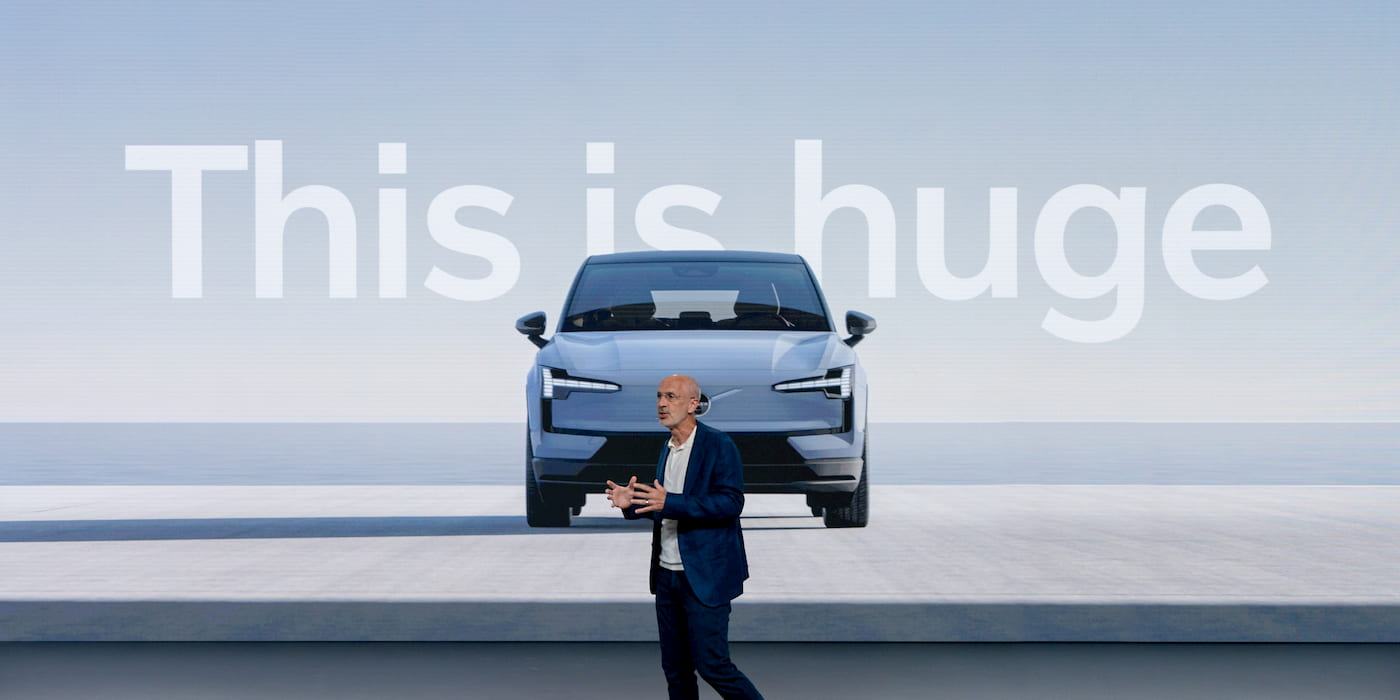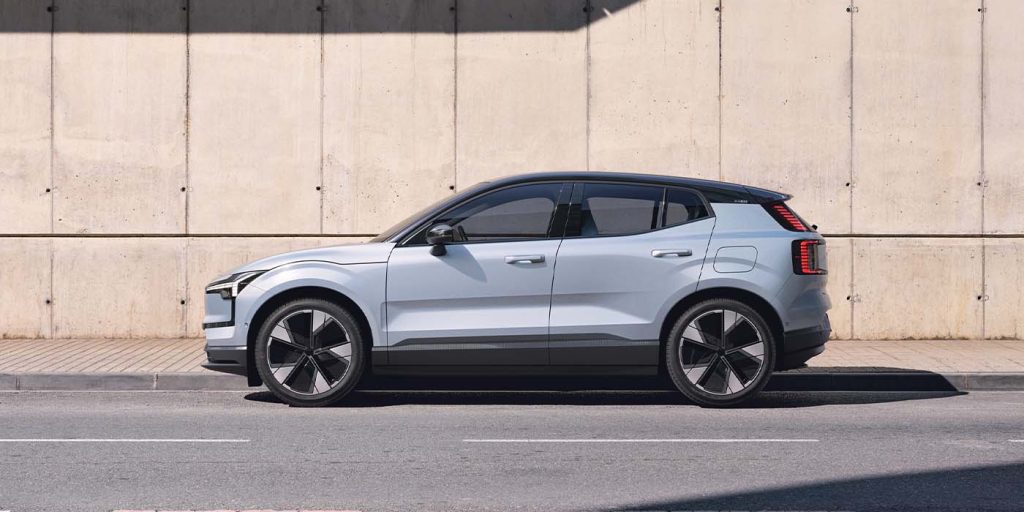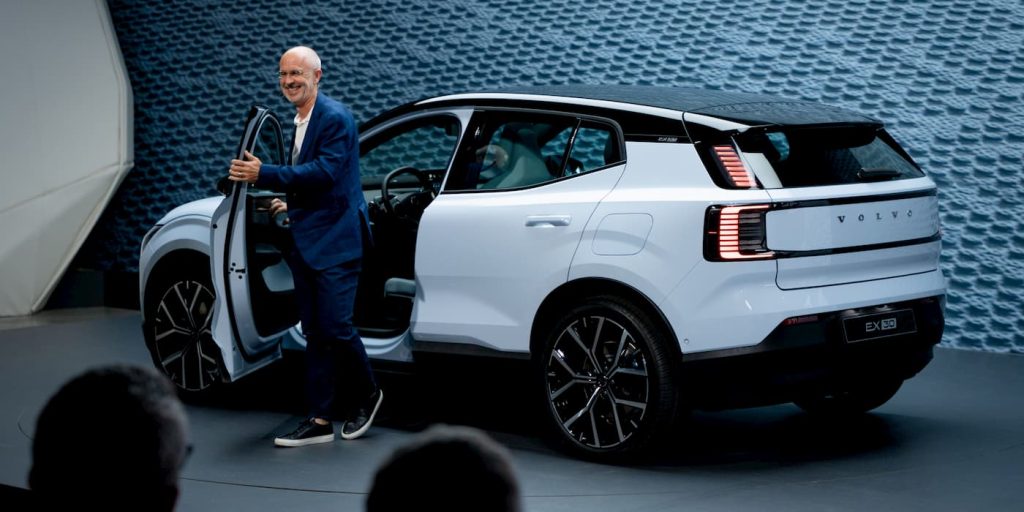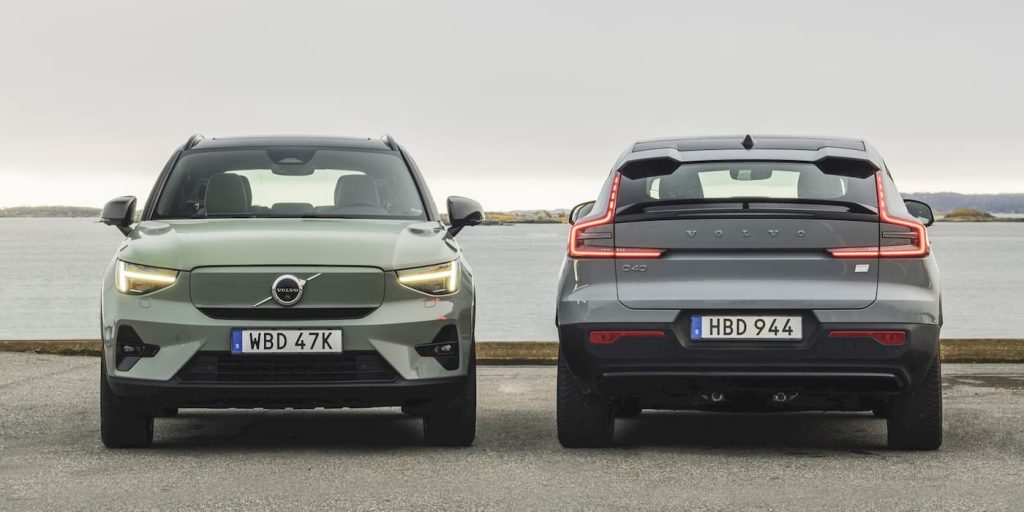
Volvo and battery giant CATL are teaming up to turn old EV batteries into new ones. The partnership aims to further reduce the carbon footprint of EVs by recycling key battery materials.
As one of the first legacy automakers to commit to an all-electric future, Volvo is already making massive strides to reduce its carbon footprint.
In fact, Volvo’s last diesel-powered car rolled off the production line last month as the automaker looks toward a cleaner future.
Last year was a “key milestone” for Volvo, according to CEO Jim Rowan. Volvo sold over 113,000 fully electric vehicles in 2023, up 70% compared to 2022. Electric cars accounted for 16% of Volvo’s total vehicle sales in 2023, but this year is expected to be even bigger.
Rowan told Reuters he expects “tremendous growth” this year as new models like the low-cost EX30 roll out.
Volvo’s EX30 starts at $34,950 in the US and €36,590 in Europe as one of the most affordable EVs.

The EX30 is already impacting sales. Volvo sold 18,021 EVs in March, up from 12,621 the year before. More importantly, fully electric vehicles accounted for 23% of total sales.
Volvo’s new compact electric SUV “contributed to the sales growth,” according to Volvo Cars’ COO and deputy CEO, Björn Annwall. He added that Volvo would “focus on ramping up sales of our EX30” in the coming months.
Volvo expects EVs to account for 50% of total sales by the end of next year as it works toward an all-electric future by 2030.

Volvo and CATL to turn old EV batteries into new ones
Volvo and CATL announced a new partnership this week as they work to reduce the carbon footprint of electric vehicles.
As electric vehicle sales continue climbing, many batteries will eventually be retired, and Volvo believes it has an answer. Volvo and CATL are teaming up to recycle old and scrapped EV batteries.
Volvo suppliers will take apart the batteries to use over 90% of the key materials like nickel, cobalt, lithium, and others.

According to Volvo, CATL will then use the materials to make new EV batteries that will be used to power its new electric cars.
Volvo and CATL signed a long-term agreement in 2019 to supply batteries for electric Volvo and Polestar models.
Volvo aims to reduce CO2 emissions per average vehicle by 75% by 2030. In its 2023 annual report, the company revealed that it had reduced average CO2 emissions per vehicle by 20% compared to the 2018 baseline.
Source: CnEVPost, Volvo Cars
FTC: We use income earning auto affiliate links. More.













